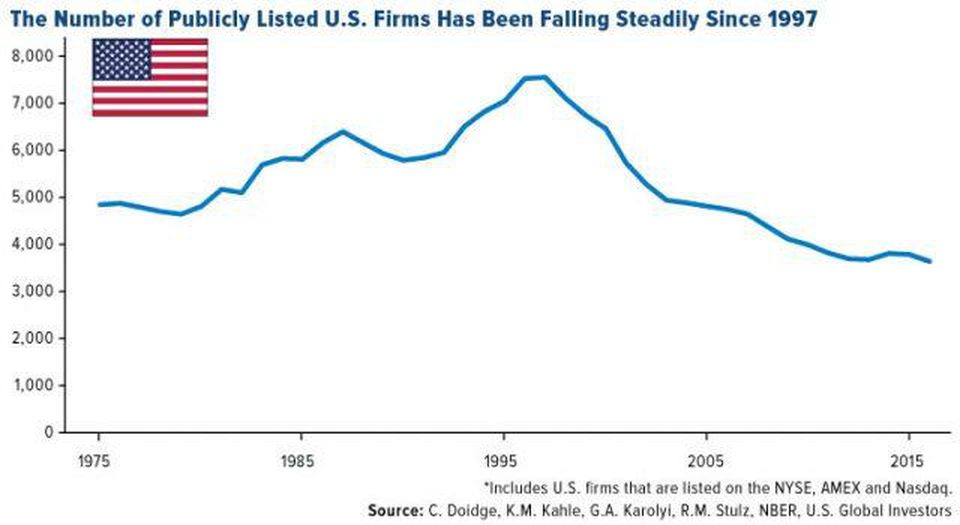Our firm has been using Exchange Traded Funds (ETFs) for cost-efficient equity exposure in portfolios since 2000. Great idea except when bought or held at record high valuations, in positively correlated global markets, that have been simultaneously hyper-extended on QE and reckless leverage.
At the same time, two decades of increasingly ‘easy money’ has ballooned the number of ETFs and index-tracking managers while the pool of publicly-traded shares that they hold has halved since 1997 (as charted below). See: The pool of publicly traded stocks is shrinking. In short, much less diversification and higher concentration risk.
 The below segment from Lance Roberts does a good job of explaining the liquidity and principle risk inherent in these conditions. But there are two additional points here that should not be missed:
The below segment from Lance Roberts does a good job of explaining the liquidity and principle risk inherent in these conditions. But there are two additional points here that should not be missed:
- Even managers, investors, and funds who style themselves as ‘active’ today are mostly long-always, equity-index-trackers. In other words, they buy and hold equities of one color or another at all times, often with a max cash weight of just 5-10%. This means they are virtually fully invested in equities, even when, like today, principle-loss odds far outweigh the prospects of lasting gains.
- Secondly, while many managers say that they get ‘defensive’ by moving from one sector or area like emerging markets to others like ‘dividend-paying’ or ‘tech’ stocks (as Lance says his firm did below), the reality is that as we saw in the 2000-03 and 2007-09 bear markets, there is no effective hiding place in equity markets that are highly correlated and move lower ensemble during risk-off waves. While most today are still holding equities for fear of missing out on upside, they do so with the unlikely hope they will be able to get out ahead of a liquidating crowd. This is a dangerous game of chicken to play with life savings.
Clarity Financial Chief Investment Strategist Lance Roberts takes a look at market history to illustrate the dangerous ground on which passive investors are standing. Here is a direct video link.


